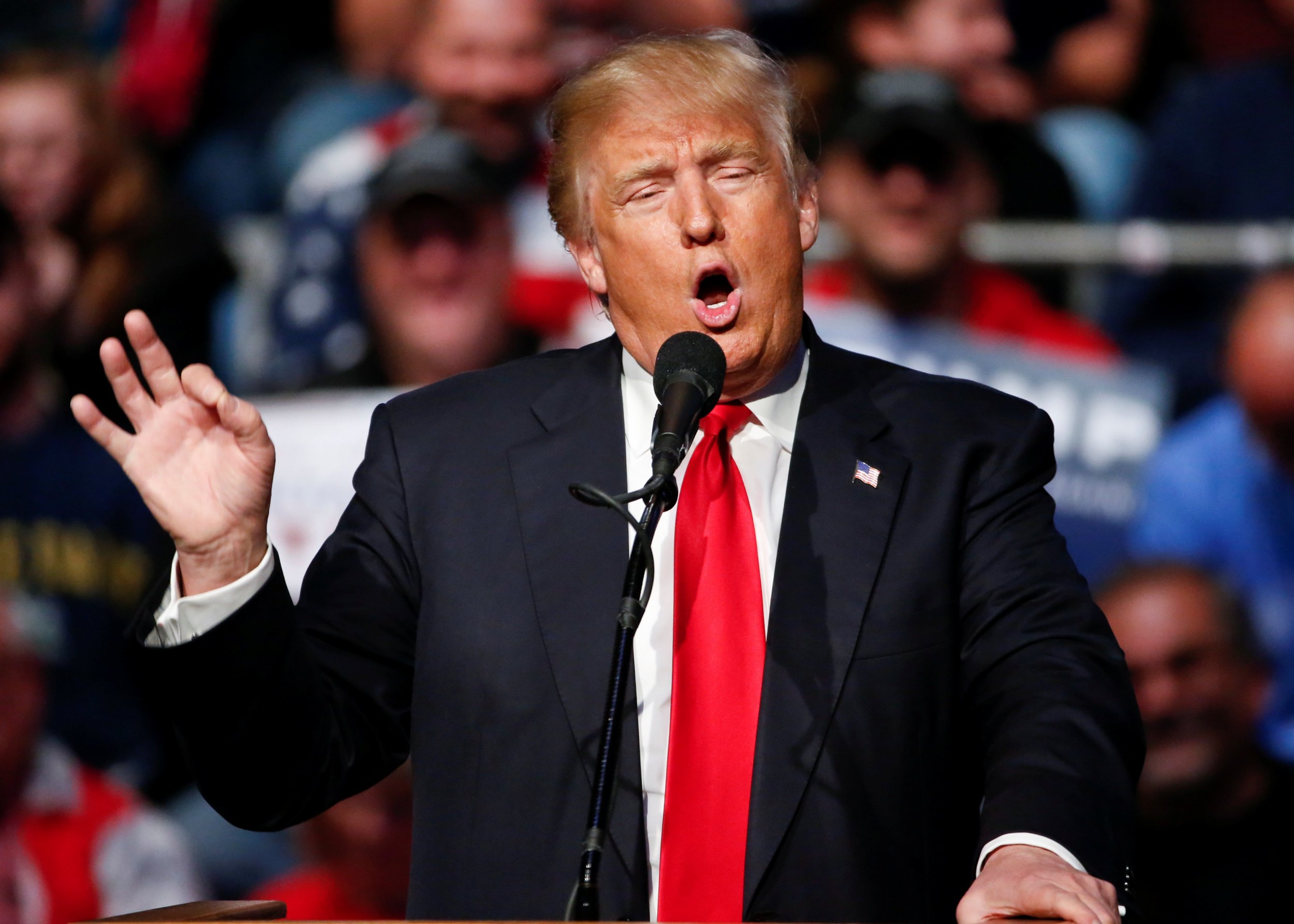
It's been 11 months since the escalator ride that changed the world. When Donald Trump announced his candidacy for the presidency it was derided, laughed at. Newsweek took it more seriously, but not everyone did. Even after Trump quickly vaulted ahead in public opinion polls, he was mocked, ridiculed, dismissed. Commentators said he'd never actually file the financial forms needed to run for president. They were wrong, and they would continue to be.
Now that Senator Ted Cruz has withdrawn from the GOP race, let's look back and ask how Trump got here, the clear GOP nominee. Already, a few myths have developed—a kind of conventional wisdom that ignores what voters really want, and what really ails the Republican party. Here's a breakdown of why Trump won and why he didn't:
It Wasn't Just About Anger
Yes, American voters are angry—irritable about a political system that's broken and an economy that doesn't seem to quite account for the rise of Trump. But anger could have manifested itself in any number of ways, with rallying around the D.C. outsider Cruz, or calling for a Bush restoration, or a different type of outsider, like Ben Carson. Anger was a necessary but not sufficient factor for a New York novice to blow away the Republican establishment.
Trump Has Real Ideas...Sort of
Much of what Trump has said is foolish and dispensable. The U.S. will not and should not impose a religious test for persons looking to enter the country. But his ideas about imposing more tariffs are perhaps crude, but not entirely stupid. Nor is his idea of imposing financial costs on companies moving American jobs overseas; the trade deficit is real, and it has consequences for American workers. Trump's refusal to want to cut entitlements is not stupid, either. And his desire to build a wall with Mexico or deport 11 million, while impractical, is no more implausible than the belief that comprehensive immigration reform—a kind of amnesty for those who are here—would mark some kind of resolution to the problems posed by undocumented immigration. It wouldn't. It'd likely lead to more calls for more amnesties at a later date.
Trump Psyched Out His Opponents
Say what you will about Trump's insults, or his middle-of-the-night barbs, but they seemed to have the desired effect. Jeb Bush seemed genuinely rattled by Trump's' "very low energy" crack. Marco Rubio turned into a standup comedian for his last week in the race, tossing out insults about hand size that only brought him down to Trump's level. Cruz spent the last hours of the Indiana race in free fall. Tuesday afternoon he raced to the microphones to respond to a ludicrous report in the National Enquirer that his father associated with Kennedy assassin Lee Harvey Oswald—a rumor that Trump has touted. Each of these bits of psychological warfare left Trump's opponents flustered. That made the mogul look bigger than his opponents. Try to imagine the last year without Trump's insults, if he had kept saying things like "my good friend…." It would have been like champagne without the bubbles.
The End of Advertising, the Rise of Free Media
Trump ran some ads in this race, but they were rare and infrequent. What he had was an endless supply of free media, particularly the acquiescence of television networks who allowed the billionaire to call in for phone interviews even on shows like "Meet the Press." Only someone with Trump's fame could have commanded the airwaves with this kind of lavish attention without spending money. But his refusal to play the old ad game showed how much the world has changed. There was a time when Bush's unrivaled Super PAC would have given him a huge edge in the race. But voters are so inundated by ads and distrustful of politicians that the effect of advertising now seems trivial, especially in early states where they blanket the airwaves and the internet, rendering voters numb.
Trump is Funny
The man is is a boor. Trump has encouraged violence. Bigots think he's on their side. But he's also incredibly funny, at times, and his rallies became entertaining events. Yes, they were angry, but anger was only part of the show. Laughter was a big part of the spectacle, too. Remember his imitation of a dehydrated Rubio, lunging for a water bottle? His dissing of Kasich for scarfing down pancakes. The best demagogues tend to be funny. George Wallace once wondered what those pointy headed bureaucrats had in their briefcases.
Ideology is for Ideologues
The idea that the Republican nominee would have to comport with a set of ideological demands — from tax cuts to free trade — was false. No one cared that Trump wanted to raise taxes, the shibboleth of the GOP. He didn't need to comport on the latest social issue, like bathroom gender assignments. Trump made it clear that he was not a down-the-line Republican. Far from that hurting him, it seemed to have helped hone his image as independent.
Trump Can't Be Bought
It's hard to underestimate the power of being able to say "I don't need their money." It helped make Bernie Sanders into the challenger he is today. Likewise, Trump positioned himself as the enemy of the system because he proudly claimed that he had bought politicians and thus understood the rot at the core of politics better than anyone.
So, when the big man walked into Trump Tower on Tuesday night to accept his place as the party's nominee, no one was laughing.
Uncommon Knowledge
Newsweek is committed to challenging conventional wisdom and finding connections in the search for common ground.
Newsweek is committed to challenging conventional wisdom and finding connections in the search for common ground.
About the writer
Matthew Cooper has worked for some of America's most prestigious magazines including Time, The New Republic, National Journal, U.S. News ... Read more
To read how Newsweek uses AI as a newsroom tool, Click here.








